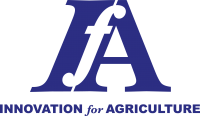Advanced Degree Accreditation Assessment Criteria
To achieve advanced accreditation for a programme, Universities will need to provide robust evidence in support of their application, which will be judged by peer review against the standard metrics listed below. The evidence should show how the intended learning outcomes are being achieved through appropriate assessment strategies. Further information can be found in the Accreditation Handbook which should be used as the main source of reference.
General Criteria
Evidence is required to show how the degree programmes meet the following:
- Academic excellence - knowledge and understanding of the subject must be based on current scholarship and research, and have appropriate assessment strategies
- Research-active environment - projects must be conducted in active research laboratories or similar professional environments appropriate to the research
- Infrastructure supporting the claim for excellence - this includes library and ICT support, experience and expertise of the teaching team, and the teaching environment and facilities
- Other student outcomes - this covers understanding of physics, chemistry and maths appropriate to biology, and an understanding of experimental design and analysis
The Period of Practice
Inclusion of a substantial period of research experience outside the normal learning environment in a professional working structure is essential to advanced accreditation. This should be considered normal practice for advanced accredited degree programmes. The period of practice will:
- Allow students to apply their learned knowledge to their own supervised research in an active research environment
- Draw upon theoretical knowledge and skills acquired during their degree
- Normally be equivalent to 80 credits; typically lasting 6 - 12 months
- Involve appropriate assessment, including a written report
- Include significant contact from the HEI
Subject Specific Criteria
Subject specific guidance and learning outcomes have been developed by appropriate Learned Societies and written specifically for accreditation by the RSB for the following subjects:
- Biochemistry
- Ecology
- Microbiology
- Neuroscience
- Pharmacology
- Physiology
These criteria can be found in the Accreditation Handbook which should be used as the main source of reference.
Supporters of Accreditation




